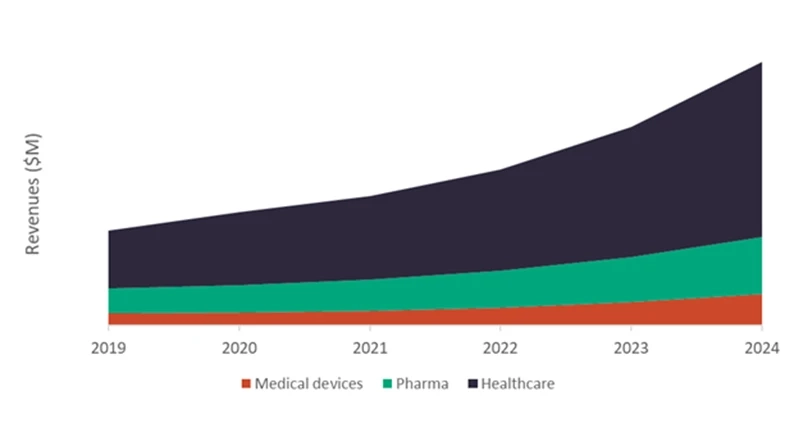AI drug discovery offers numerous advantages, but also faces challenges and presents opportunities.
For AI in drug discovery market analysis, download a free report sample
Here's an overview of each:
Advantages:
Efficiency: AI accelerates the drug discovery process by automating data analysis, compound screening, and predictive modeling tasks, reducing time and resources required for drug development.
Cost-Effectiveness: By streamlining drug discovery workflows and reducing the need for labor-intensive experimentation, AI can lower the overall costs of drug development, making it more accessible to smaller companies and startups.
Increased Success Rates: AI-driven predictive modeling and optimization algorithms improve the selection of drug candidates with higher probabilities of success in clinical trials, ultimately increasing the likelihood of bringing successful drugs to market.
Precision Medicine: AI enables the identification of patient subpopulations likely to respond to specific treatments based on individual genetic, clinical, and molecular characteristics, leading to the development of more targeted and effective therapies.
Drug Repurposing: AI algorithms can identify existing drugs with potential efficacy for new indications by analyzing large datasets of drug-target interactions, accelerating the discovery of new uses for approved drugs.
Biological Insights: AI-powered analysis of complex biological data, such as genomics and proteomics, provides deeper insights into disease mechanisms, enabling the discovery of novel drug targets and pathways.
Challenges:
Data Quality and Availability: Access to high-quality, comprehensive datasets is crucial for training AI models in drug discovery. However, data availability, standardization, and quality issues pose significant challenges, particularly in accessing proprietary or limited datasets.
Interpretability and Transparency: AI algorithms, particularly deep learning models, are often considered "black boxes" with limited interpretability, making it challenging to understand the rationale behind their predictions and decisions, which is critical for regulatory approval and scientific validation.
Overfitting and Generalization: AI models trained on biased or limited datasets may suffer from overfitting, leading to poor generalization and unreliable predictions when applied to real-world scenarios or diverse patient populations.
Regulatory and Ethical Considerations: Regulatory agencies are still developing guidelines for the use of AI in drug discovery, raising concerns about safety, efficacy, and ethical implications. Ensuring compliance with regulatory standards and ethical principles is a significant challenge for AI-driven drug discovery.
Integration with Traditional Methods: Integrating AI-driven approaches with traditional experimental methods and domain expertise is essential for maximizing the effectiveness of drug discovery efforts. However, achieving seamless integration and collaboration between AI and human researchers can be challenging.
Opportunities:
Advanced AI Algorithms: Continued advancements in AI algorithms, such as deep learning, reinforcement learning, and generative modeling, offer opportunities to improve the accuracy, efficiency, and scope of drug discovery tasks.
Multimodal Data Integration: Integrating diverse data modalities, including genomics, imaging, clinical records, and real-world evidence, enables a holistic understanding of disease biology and patient heterogeneity, leading to more effective drug discovery strategies.
Collaborative Partnerships: Collaborations between pharmaceutical companies, research institutions, technology startups, and AI companies facilitate the exchange of expertise, resources, and data, accelerating innovation and overcoming technical challenges.
Regulatory Innovation: Regulatory agencies are exploring innovative approaches, such as adaptive licensing and real-world evidence frameworks, to accommodate AI-driven drug discovery and streamline the regulatory approval process.
Global Market Expansion: The global market for AI in drug discovery is projected to expand rapidly, driven by increasing investments, technological advancements, and growing demand for innovative therapies, presenting opportunities for companies to capitalize on this emerging market.
In summary, while AI offers significant advantages in drug discovery, it also faces challenges related to data quality, interpretability, regulatory compliance, and integration with traditional methods. Addressing these challenges and leveraging emerging opportunities can drive further innovation and accelerate the development of novel therapies to address unmet medical needs.


